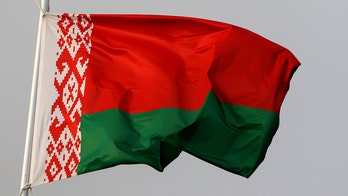Nigeria has replaced its national anthem in a move that has sparked criticism over the hasty process and lack of public input.

Nigeria has adopted a new national anthem after lawmakers passed a law replacing the current anthem with a version dropped nearly half a century ago. The move has sparked widespread criticism over the hasty passage of the law without much public input.
President Bola Tinubu assented to the law a day after it was approved by both chambers of Nigeria's National Assembly, which is dominated by the governing party. The federal lawmakers introduced and passed the bill in less than a week, an unusually fast process for important bills that usually take weeks or months to be considered.

The "Arise, O Compatriots" anthem being replaced had been in use since 1978, when it was introduced by the military government. The anthem was composed at a time when the country was reeling from a deadly civil war and calls on Nigerians to "serve our fatherland with love and strength" and not to let "the labor of our heroes past (to be) in vain."
The new version that takes immediate effect was first introduced in 1960 when Nigeria gained independence from Britain before it was dropped by the military. Titled "Nigeria We Hail Thee," it was written by Lillian Jean Williams, a British expatriate who was living in Nigeria at the time.
The new anthem was played publicly for the first time at a legislative session attended by Tinubu, who marked his one year in office as president on Wednesday. However, many Nigerians have expressed their displeasure with the change on social media, saying they will not be singing the new anthem.
Oby Ezekwesili, a former education minister and presidential aspirant, said that the new law shows that the country’s political class doesn't care about the public interest.
"In a 21st Century Nigeria, the country’s political class found a colonial National Anthem that has pejorative words like "Native Land" and "Tribes" to be admirable enough to foist on our Citizens without their consent," Ezekwesili posted on X.
Supporters of the new anthem, however, argued that it was wrong for the country to have adopted an anthem introduced by the military.
"Anthems are ideological recitations that help the people to be more focused. It was a very sad development for the military to have changed the anthem," public affairs analyst Frank Tietie said. ".
The controversy surrounding the new anthem highlights the ongoing debate over the legacy of colonialism in Nigeria and the role of the military in the country's history. The hasty passage of the law has also raised concerns about the lack of transparency and accountability in the country's legislative process.
It remains to be seen whether Nigerians will embrace the new anthem or continue to sing the old version, which has become a symbol of national pride for many.










